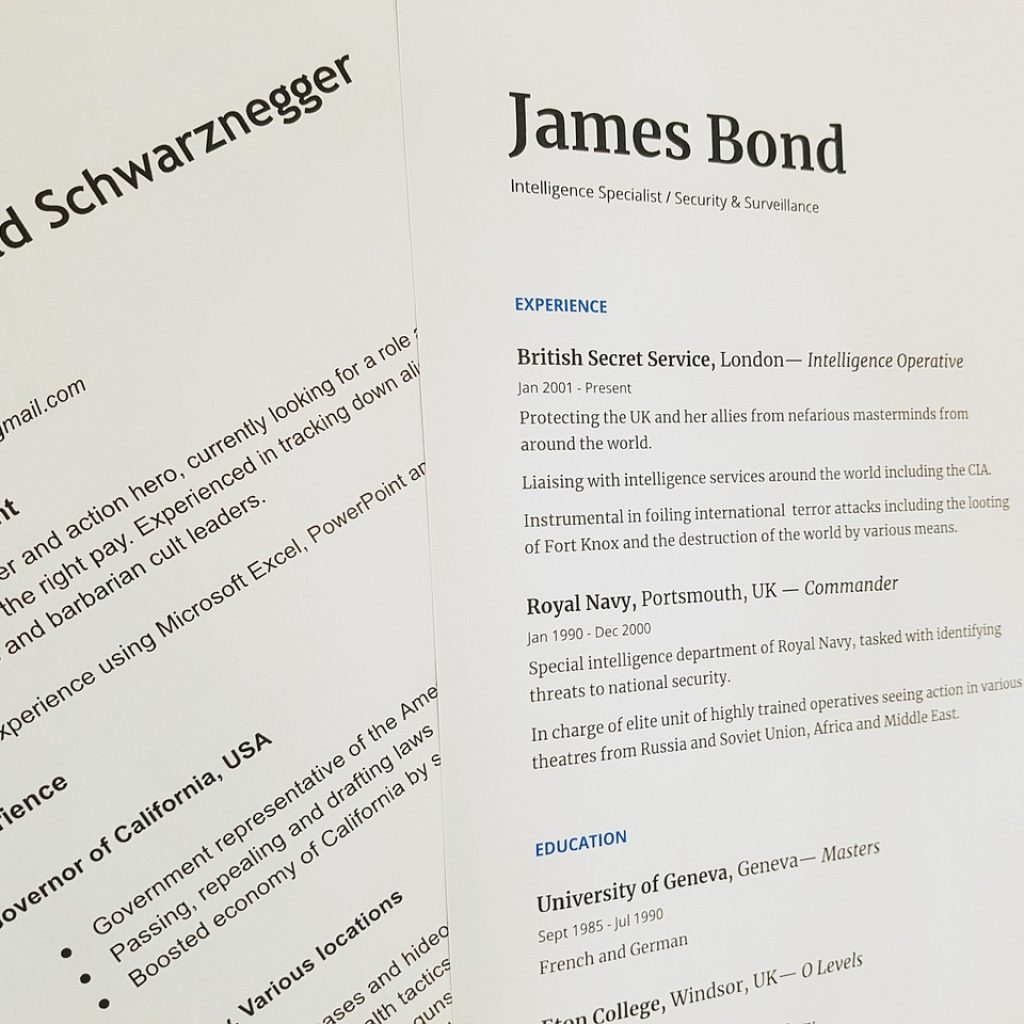



Are you tired of your resume getting lost in a sea of applicants? It’s time to unleash the power of effective resume keywords and take control of your job search. Just like a key unlocks a door, the right keywords can unlock opportunities and open doors to your dream career.
By strategically incorporating industry-specific keywords, you can showcase your expertise and stand out from the competition. Whether it’s in your resume summary, cover letter, or email, using the right keywords will demonstrate alignment with the job description and capture the attention of hiring managers.
So, get ready to tailor your resume with precision and watch as those keywords pave the way to your future success.
Table of Contents
The Importance of Resume Keywords
Why are resume keywords so important for you? Well, when it comes to landing your dream job, the right keywords can make all the difference. In today’s competitive job market, companies are using Applicant Tracking Systems (ATS) to scan resumes and cover letters for specific keywords. This means that if your application lacks the right keywords, it could be automatically rejected before a hiring manager even has a chance to see it.
Think about it. Recruiters spend an average of just 7 seconds scanning each resume. That’s not a lot of time to make a good impression. By incorporating relevant keywords into your resume, you increase the chances of catching their attention quickly.
But it’s not just about getting past the ATS. Using the right keywords also helps you to showcase your skills and experience in a way that matches the job description. By including industry-specific keywords in your work experience section, you demonstrate that you have the hard skills necessary for the job.
To optimize your resume, consider using a job description keyword finder like Jobscan. This tool can help you identify and incorporate the most relevant keywords for your industry. By strategically using keywords, you can increase your chances of getting noticed by both the ATS and the hiring manager. So don’t underestimate the power of resume keywords. They could be the key to unlocking your next career opportunity.
How to Identify Relevant Resume Keywords
When it comes to identifying relevant resume keywords, the first step is to carefully read the job description and pay attention to the skills and qualifications listed as requirements. Look for job-specific keywords that describe your primary skills and core qualifications.
Once you have identified these keywords, add them to your resume, particularly in the work experience section. By tailoring your resume to each job application and utilizing tools like Jobscan’s resume scanner, you can ensure that your resume contains the relevant keywords that match your qualifications and the job requirements.
Importance of Job-Specific Keywords
Identifying relevant resume keywords is crucial for maximizing your chances of impressing employers and getting noticed by applicant tracking systems (ATS).
These keywords are specific words or phrases that are commonly mentioned in job postings and describe the skills, qualifications, and experiences that companies are looking for. By including these keywords in your resume and cover letter, you are able to demonstrate that you possess the necessary qualifications for the job.
Applicant tracking systems (ATS) are commonly used by hiring managers to quickly evaluate resumes, and they rely on keywords to match the job description mentions. Therefore, it is important to carefully read the job posting and identify the keywords that match the job requirements.
Tips for Keyword Research
To effectively identify relevant resume keywords, continue the discussion from the previous subtopic and follow these tips for keyword research:
- Re-read the job description: Take the time to carefully read and analyze the job listing to find keywords that align with the skills and qualifications they are looking for. This will help ensure that your resume matches the requirements.
- Use tools like Jobscan: Utilize resume scanners or keyword analysis tools like Jobscan to compare your resume to the job description. These tools provide a resume score based on skills, keywords, and experience, helping you optimize your resume for each application.
- Optimize your resume: Tailor your resume by tweaking existing keywords and incorporating the best ones from the job listing. Pay attention to specific job titles, hard skills, and industry-specific keywords mentioned in the description to enhance your resume’s relevance.
Incorporating Keywords in Your Resume
You should incorporate keywords in your resume to enhance its effectiveness and increase your chances of getting noticed by employers. Including relevant keywords in your resume helps align your skills and qualifications with the job requirements, making it easier for hiring managers to identify your potential fit for the role. When incorporating keywords, it is important to use them in a contextually relevant manner, ensuring that they seamlessly blend into your resume.
Start by analyzing the job description and identifying the key skills and qualifications that are mentioned. Look for specific words and phrases that are repeatedly used and make a note of them. Then, strategically incorporate these keywords throughout your resume, especially in the work experience section where you can highlight how you have utilized those skills in previous roles. Additionally, consider tweaking existing keywords in your resume to match the job description.
This optimization process can be further simplified by using tools like Jobscan’s resume scanner, which automatically compares your resume to the job description and suggests relevant resume keywords.
Tailoring Your Resume With Keywords
To maximize the impact of your resume, it’s crucial to tailor it with relevant keywords. By carefully selecting and incorporating keywords from the job description, you can increase your resume’s visibility and catch the attention of hiring managers and applicant tracking systems (ATS). This strategic approach ensures that your skills and qualifications align with the requirements of the position, increasing your chances of landing an interview.
Choosing Relevant Keywords
When tailoring your resume with keywords, start by identifying action verbs that demonstrate your accomplishments and success in previous experiences. Incorporating these keywords in your resume is essential to improve your chances of getting noticed by hiring managers. Here are three key points to keep in mind:
- Use Resume Keywords: Look for specific keywords in the job description that align with your skills and experiences. These keywords should be relevant to the job you are applying for and should be included in your resume.
- ATS Resume Keywords: Many companies use Applicant Tracking Systems (ATS) to scan resumes for specific keywords. Make sure to include relevant keywords throughout your resume to increase your chances of passing through the ATS screening process.
- Keywords from the Job: Pay close attention to the job description and incorporate keywords that are mentioned multiple times. This will show recruiters that you have the desired qualifications and skills they are looking for.
Increasing Resume Visibility
Tailor your resume with relevant keywords to increase its visibility and catch the attention of hiring managers. With the prevalence of applicant tracking systems (ATS) used by most Fortune 500 companies, it is crucial to optimize your resume for maximum visibility.
Start by analyzing job descriptions using tools like Jobscan’s resume scanner to identify important keywords. Incorporate these keywords strategically into your resume, particularly in the skills section and job titles. Mirroring the language used in the job ad can also enhance your resume’s visibility and match with ATS criteria.
For example, if you are applying for a Web Developer position, include keywords such as “Web Developer” and relevant skills like coding languages and frameworks.
Remember, the goal is to pass the initial screening process and stand out to hiring managers.
ATS Resume Keywords: What You Need to Know
Understand the importance of incorporating specific keywords into your resume to optimize it for ATS screening. Applicant Tracking Systems (ATS) are widely used by Fortune 500 companies to streamline the hiring process and filter job applications. To increase your chances of getting noticed, here’s what you need to know about ATS resume keywords:
- Check the job description: Carefully review the job description and identify keywords that align with the qualifications and skills required. Look for specific hard skills that are mentioned as requirements.
- Tailor your resume: Once you have identified the keywords to use, make sure to incorporate them into your resume. Customize your resume for each job application by tweaking existing keywords to match the job description.
- Optimize for plain text: ATS systems often prefer plain text resumes. Avoid using fancy formatting or graphics that can confuse the system. Stick to a clean and simple layout to ensure that the ATS can read and parse your resume effectively.
Avoiding Common Mistakes With Resume Keywords
Are you aware of the common mistakes to avoid when it comes to resume keywords? If not, pay attention, because making these mistakes can cost you the job. One mistake job seekers often make is using too many keywords in their resume. While it’s important to include relevant keywords from the job description, you don’t want to go overboard and stuff your resume with keywords. Applicant tracking systems (ATS) can’t recognize keyword stuffing and it may lead to rejection by both ATS and hiring managers.
Another mistake to avoid is using hidden keywords. Some job seekers try to hide keywords by using white font or placing them in the margins. However, be cautious as these hidden keywords may become visible to hiring managers and negatively impact your application. It’s always best to be honest and only include keywords that truly reflect your skills and experience.
Proofreading your resume is also crucial to avoid misspelled words. ATS recognizes specific words, and misspellings may not be counted. So, make sure to proofread your resume carefully and fix any spelling errors before submitting it.
Lastly, consistency is key when using keywords. Make sure to use the same keywords throughout your resume and application. This ensures that the keywords are recognized by ATS and recruiters, increasing your chances of getting noticed.
To learn what resume keywords are best to include, the job description is the best place to find them. Take the time to carefully review the job description and make sure the keywords listed in the job are incorporated into your resume.
Using Keywords in Your Cover Letter and Email
When crafting your cover letter and email, it’s essential to include relevant keywords that align with the job description. By incorporating these keywords strategically, you can increase your chances of getting noticed by the applicant tracking system and the hiring manager. Here are three ways to effectively use keywords in your cover letter and email:
- Skills Section: Begin by including a skills section in your cover letter and email. This section should highlight your key qualifications and abilities, using contextually relevant keywords. For example, if the job requires strong communication skills, include keywords such as “effective communicator” or “excellent interpersonal skills.”
- Synonyms and Variety: To ensure comprehensive keyword coverage, use synonyms throughout your cover letter and email. This not only helps in avoiding keyword stuffing but also shows your versatility in using different terms to describe your skills and experiences. For instance, if the job requires project management skills, you can use keywords like “project coordination,” “team leadership,” or “task organization.”
- Natural Integration: Rather than simply listing keywords, aim to scatter them naturally throughout the text. Align the keywords with the job description and showcase how your experiences and achievements are relevant. Use action verbs to describe your accomplishments, emphasizing your suitability for the role. For example, instead of saying “I have good problem-solving skills,” you can say “I successfully resolved complex issues by implementing innovative solutions.”
Top Resume Keywords for 2023
To effectively optimize your resume for 2023, it is important to understand the top resume keywords that will catch the attention of recruiters and applicant tracking systems (ATS). These keywords are the key to landing your dream job and standing out from the competition. Recruiters use applicant tracking systems to scan resumes for specific keywords that match the job description. Managers are looking for candidates with the right skills and qualifications, and incorporating these keywords into your resume will help you get noticed.
Start by highlighting your Resume Skills and Resume Action words that are relevant to the position you are applying for. For example, if you have years of experience in project management, make sure to include keywords such as “project management,” “leadership,” and “strategic planning.” If you have a bachelor’s degree, mention it in your resume to show that you have the required educational background.
When writing your resume, focus on creating the Best Resume possible by strategically placing these keywords throughout your document. Tailor your resume to each specific job application to increase your chances of landing a senior position. By incorporating these top resume keywords, you will increase your chances of getting through the initial resume screening process and secure an interview with your dream employer.
Frequently Asked Questions
What Keywords Should I Use in My Resume?
To make your resume stand out, include keywords that match the job description. Focus on skills and qualifications listed as requirements. Use tools like Jobscan to analyze your resume and optimize it for each job.
What Are the Best Words to Use on a Resume?
To create an effective resume, use powerful words that grab attention. Highlight your skills, qualifications, and industry-specific knowledge. Don’t forget to optimize keywords by matching them to the job description. Be honest and avoid stuffing or hiding keywords.
What Are Key Terms in a Resume?
Key terms in a resume are specific words or phrases that describe your skills, abilities, and experiences. They include job-specific terms, action verbs, industry buzzwords, transferable skills, and qualifications.
What Keywords Do Recruiters Look For?
Recruiters look for keywords that match the job description, like social media, SEO, or branding. Make sure your resume has the right keywords to catch their attention and avoid being overlooked by ATS.









